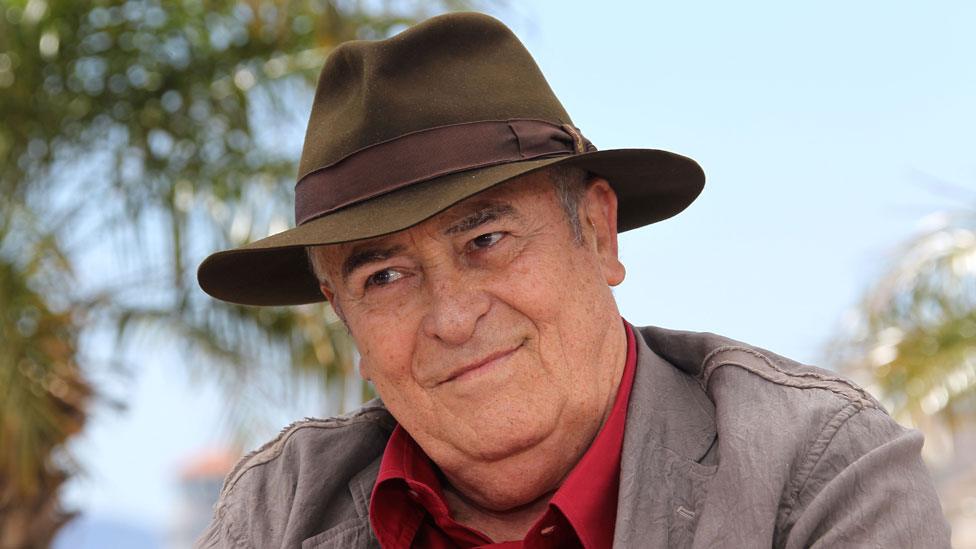Bernardo Bertolucci: Last Tango in Paris, The Last Emperor and other key films
- Published
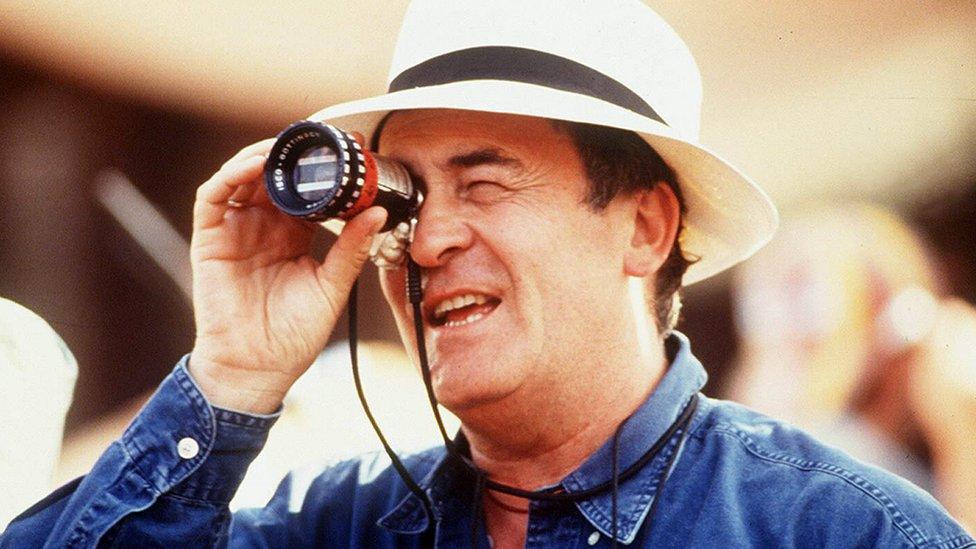
Italian film director and screenwriter Bernardo Bertolucci, who has died at the age of 77, was one of the most celebrated - and controversial - European film-makers of the last 50 years.
Here are five of his key films:
The Conformist (1970)

Jean-Louis Trintignant and Dominique Sanda in The Conformist
Bertolucci had already made his name, with films like The Spider's Stratagem, also from 1970, but this visual masterpiece was his breakthrough around the world.
Adapted from Alberto Moravia's 1951 novel, it addressed Italy's fascist history with a plot revolving around a member of the secret police who is tasked with assassinating his anti-fascist former professor, who's in exile in Paris.
It was lauded for its eerie, operatic imagery, which is credited for influencing The Godfather and The Godfather: Part II. Francis Ford Coppola even recruited Bertolucci's cinematographer, Vittorio Storaro, for 1979's Apocalypse Now.
The Conformist earned Bertolucci his first Oscar nomination - for best adapted screenplay rather than best director.
Last Tango in Paris (1972)
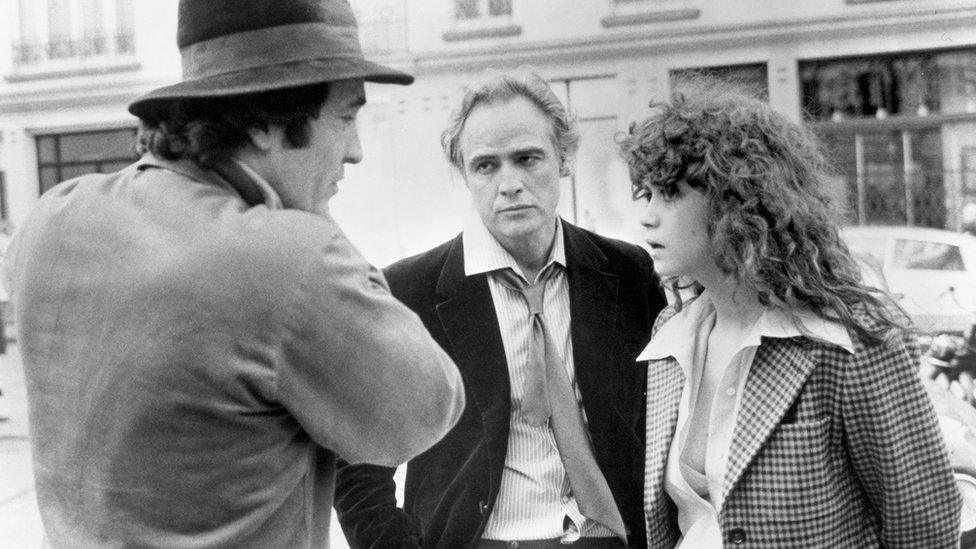
Bertolucci (left) on the set of Last Tango in Paris with Marlon Brando and Maria Schneider
Two years later, Bertolucci was nominated for best director for Last Tango in Paris, and Marlon Brando was nominated for best actor, a year after he'd won for The Godfather.
Brando plays Paul, an American in Paris, who deals with his wife's suicide by shacking up with Jeanne (Maria Schneider) in an empty apartment.
His anguished monologue over the body of his wife was "perhaps the best acting he has ever done", critic Roger Ebert declared, external.
But the dark, torrid story about love and grief shocked as soon as it was released, and the film was banned in Italy for a brutal, now-notorious sex scene involving butter.
The director sparked criticism years later by saying he had come up with the idea for the butter scene with Brando that morning without telling Schneider because he "wanted her reaction as a girl, not as an actress".
In a 2007 interview, external, Schneider said she that although the scene was simulated, she had felt "humiliated" and "a little raped, both by Marlon and by Bertolucci."
The Last Emperor (1987)
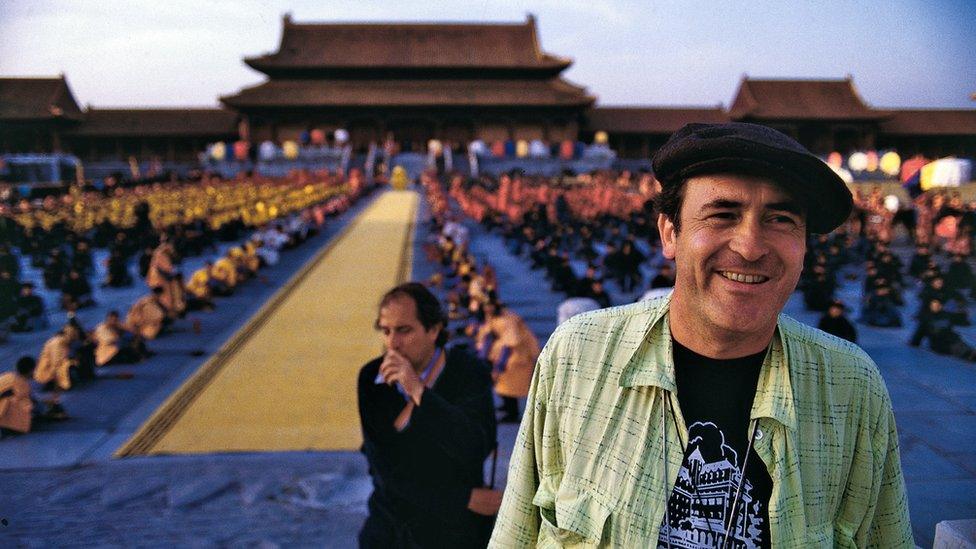
Bertolucci on the set of The Last Emperor
This epic tale of Pu Yi, who became emperor of China at the age of three, was Bertolucci's critical and commercial pinnacle.
Pu Yi was dethroned at six but was allowed to stay in Beijing's sprawling Forbidden City, and The Last Emperor was the first feature to be allowed to film inside the palace complex.
The project took four years to film, using 19,000 extras and 9,000 costumes.
Through flashbacks, it told of how the "son of heaven", who began his life as ruler of half the world's population, ended up as a lowly assistant in Beijing's botanical garden.
Despite that, Bertolucci said it was "one of the few movies which has a kind of happy ending".
Perhaps that was one reason why it was showered with Oscars - nine in total - including best picture, best director and best cinematography for Storaro.
In his acceptance speech, Bertolucci acknowledged his new reliant relationship with Hollywood, joking: "If New York is the big apple, to me Hollywood tonight is the big nipple."
The Sheltering Sky (1990)
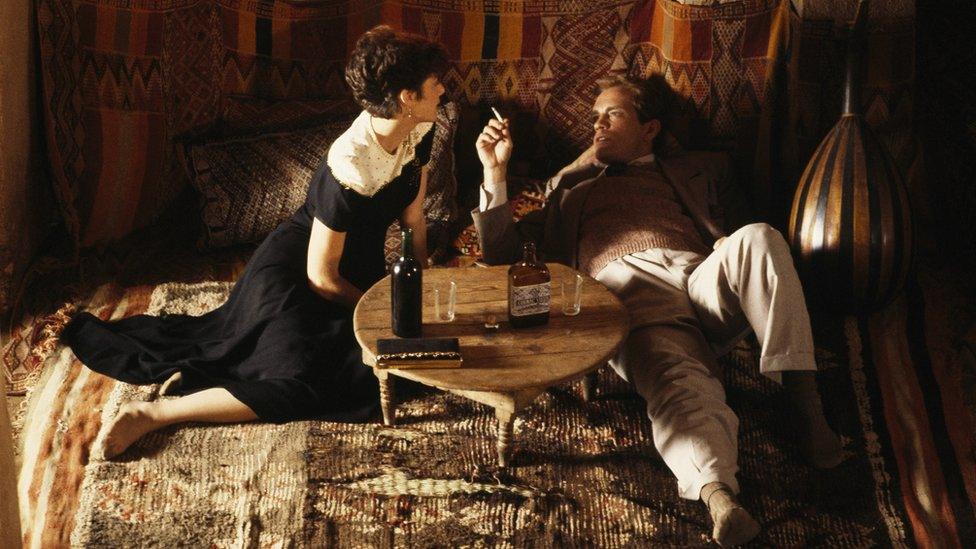
Debra Winger and John Malkovich starred in The Sheltering Sky
Bertolucci moved to post-war North Africa for his follow-up, a heady adaptation of Paul Bowles's 1949 novel.
John Malkovich starred as American composer Port Moresby (unfathomably named after the capital of Papua New Guinea) and Debra Winger as his wife Kit. Together they went on a voyage of self-discovery as self-styled intrepid travellers into the unknown.
It was well-received and Bertolucci was nominated for a Golden Globe, while Storaro's cinematography won a Bafta. But It couldn't replicate the success of The Last Emperor.
The Dreamers (2003)
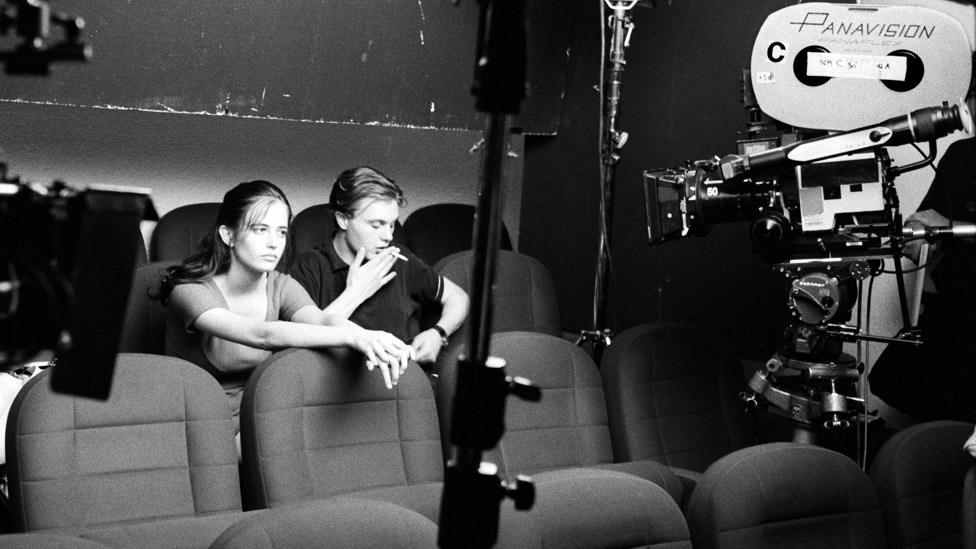
Eva Green and Michael Pitt on the set of The Dreamers
The Italian director continued with a string of romantically charged films about alluring young women - 1996's Stealing Beauty; 1998's Beseiged, starring Thandie Newton; and The Dreamers, which gave Eva Green her big-screen debut.
The Dreamers saw him return to the radical Europe of the late 1960s and, like Last Tango, put an American visitor (Michael Pitt) into life in Paris.
Pitt was younger than Brando, and his character found himself embroiled in a strange erotic triangle with beautiful twins Isabelle (Green) and Theo (Louis Garrel).
It was, The Guardian's Peter Bradshaw, external decided, Bertolucci's "best picture for many years".

Follow us on Facebook, external, on Twitter @BBCNewsEnts, external, or on Instagram at bbcnewsents, external. If you have a story suggestion email entertainment.news@bbc.co.uk.
- Published26 November 2018
